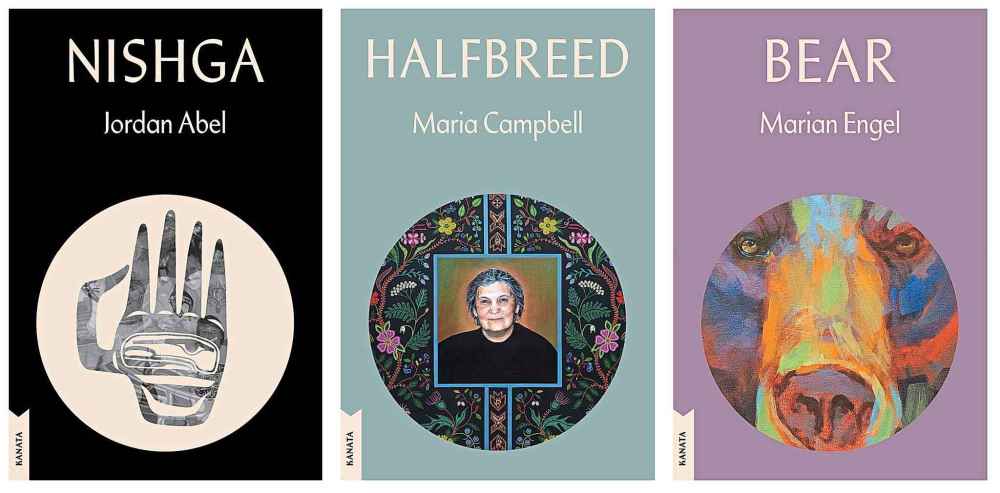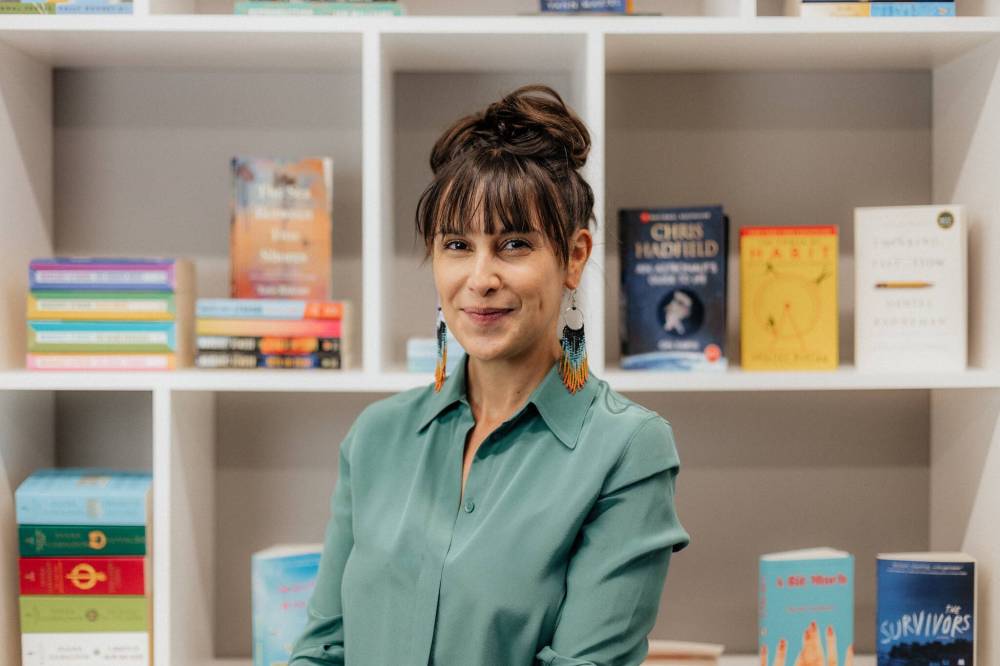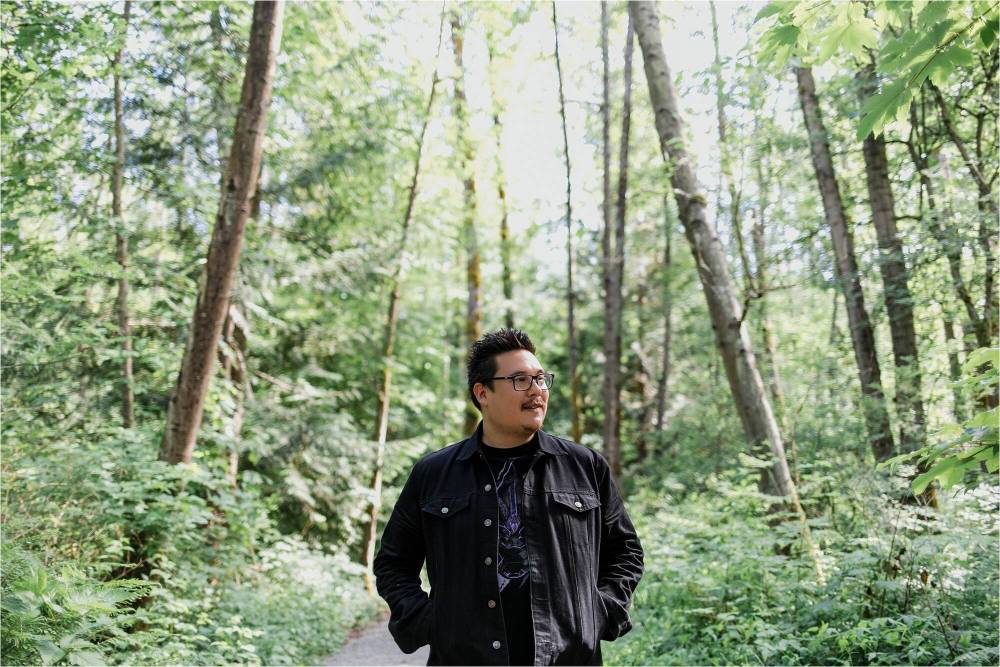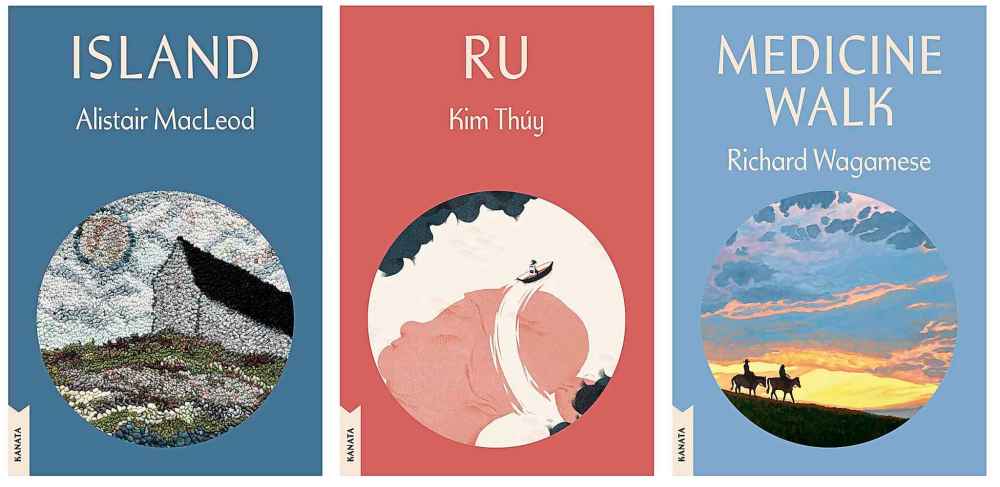Carefully curated
Kanata Classics book series explores Truth and Reconciliation 10 years after the report was released
Advertisement
Read this article for free:
or
Already have an account? Log in here »
To continue reading, please subscribe:
Monthly Digital Subscription
$0 for the first 4 weeks*
- Enjoy unlimited reading on winnipegfreepress.com
- Read the E-Edition, our digital replica newspaper
- Access News Break, our award-winning app
- Play interactive puzzles
*No charge for 4 weeks then price increases to the regular rate of $19.00 plus GST every four weeks. Offer available to new and qualified returning subscribers only. Cancel any time.
Monthly Digital Subscription
$4.75/week*
- Enjoy unlimited reading on winnipegfreepress.com
- Read the E-Edition, our digital replica newspaper
- Access News Break, our award-winning app
- Play interactive puzzles
*Billed as $19 plus GST every four weeks. Cancel any time.
To continue reading, please subscribe:
Add Free Press access to your Brandon Sun subscription for only an additional
$1 for the first 4 weeks*
*Your next subscription payment will increase by $1.00 and you will be charged $16.99 plus GST for four weeks. After four weeks, your payment will increase to $23.99 plus GST every four weeks.
Read unlimited articles for free today:
or
Already have an account? Log in here »
A new series of books from publisher McClelland & Stewart that contemplates life in Canada coincides with the 10th anniversary of the final report of the Truth and Reconciliation Commission (TRC).
Published on July 15, Kanata Classics’ first six titles, which are all previously released works of fiction and non-fiction, feature writing by a range of Indigenous and non-Indigenous Canadian authors and feature new packaging and introductions.
The initiative was spearheaded by publisher Stephanie Sinclair, who joined McClelland & Stewart (which is owned by Penguin Random House) in 2022. “We started to talk about it within six months of my starting … the first conversations were enthusiastic,” she says. “It felt really important to get it done in 2025 to honour the 10th anniversary of the TRC.”

Sinclair worked with Robert Wheaton, Penguin Random House Canada’s chief strategy and operations officer, to navigate the bureaucratic details and create an advisory board (which includes McNally Robinson Booksellers co-owner Chris Hall and Free Press columnist Niigaan Sinclair). “I could ask them the big questions — not about title selections, but about the framing of the series,” she says. “It felt really helpful to have this brain trust that I could go to for advice.”

For Stephanie Sinclair, who identifies as Cree, Ojibwa, and German/Jewish, the first six books — three by Indigenous writers and the other three by non-Indigenous authors — speak to the experience of Canadian life. “One of the things that was really important to me, as an urban Indigenous person who didn’t grow up in ceremony or in community, was that the books speak to all of our relationship with land, and how differently that can be experienced,” she says. “That’s one of the threads through all the books. It’s something that is so often overlooked, and that is really, deeply important to our survival on multiple levels.”
With the titles selected, Sinclair then turned to finding writers to pen introductions to each of the books (save Maria Campbell’s memoir Halfbreed — Campbell wrote her own introduction). “I had a list of ideal people — I wrote to them, and everyone very enthusiastically and quickly said yes. It was beautiful … it just came together incredibly seamlessly,” she says. (Winnipeg’s David A. Robertson wrote the introduction to Richard Wagamese’s novel Medicine Walk.)
Sinclair then enlisted book designer Kelly Hill to create the look and feel of the Kanata Classics series. “Kelly really understood my vision for it, and has such an incredibly beautiful esthetic and brought such thoughtful care to all of the choices,” Sinclair says.

One of Sinclair’s first choices for the Kanata Classics series was Nisga’a author Jordan Abel’s Nishga. Originally published in 2021 by McClelland & Stewart, Nishga sees the Edmonton-based author grappling with the legacy of intergenerational trauma through fragments of memoir, transcriptions of talks as well as visual art and photography.
“I have a difficult relationship with this book — it’s about intergenerational trauma and urban indigeneity and the afterlife of residential schools,” Abel says.” When I go to readings and perform parts of the book, there are only four or five pages that I can really even read from.”
For Abel, the inclusion of Nishga in the Kanata Classics series was humbling. “When I wrote Nishga, I had no real understanding of where it would go, or who would pick it up, or if anyone would pick it up, really,” he says. “It’s really an incredible honour for Nishga to be included alongside what I think are some of the best, most canonical texts in Canadian literature and also Indigenous literature,” he adds, calling Maria Campbell’s Halfbreed “maybe the most important book that I’ve ever read.”

Like Sinclair, Abel sees the books existing in conversation with each other as well as with Canadian readers about the experience of life in Canada. “The books are all very different — they speak to really specific experiences within this nation … even the ones that resist that category of nation and Canadian nationalism,” he says. “They attempt to shine a light on certain kinds of experiences that we don’t always talk about, or that we don’t talk about enough. I think these are underrepresented kinds of experiences of ‘Canadian-ness.’”
Sinclair hopes the Kanata Classics series is able to continue stimulating conversation and reflections by readers on life in Canada. “I feel like the scope of how Canadians identify themselves has only gotten smaller over many years,” she says. “Part of my aim with the series is, of course, to advocate for Indigenous storytelling, which has not been welcomed into the Canadian ‘canon.’ But I also want to make sure that books like (Vietnamese-Canadian author Kim Thúy’s) Ru are there too, because they all speak to an equally important human experience.”
ben.sigurdson@freepress.mb.ca

Ben Sigurdson
Literary editor, drinks writer
Ben Sigurdson is the Free Press‘s literary editor and drinks writer. He graduated with a master of arts degree in English from the University of Manitoba in 2005, the same year he began writing Uncorked, the weekly Free Press drinks column. He joined the Free Press full time in 2013 as a copy editor before being appointed literary editor in 2014. Read more about Ben.
In addition to providing opinions and analysis on wine and drinks, Ben oversees a team of freelance book reviewers and produces content for the arts and life section, all of which is reviewed by the Free Press’s editing team before being posted online or published in print. It’s part of the Free Press‘s tradition, since 1872, of producing reliable independent journalism. Read more about Free Press’s history and mandate, and learn how our newsroom operates.
Our newsroom depends on a growing audience of readers to power our journalism. If you are not a paid reader, please consider becoming a subscriber.
Our newsroom depends on its audience of readers to power our journalism. Thank you for your support.


